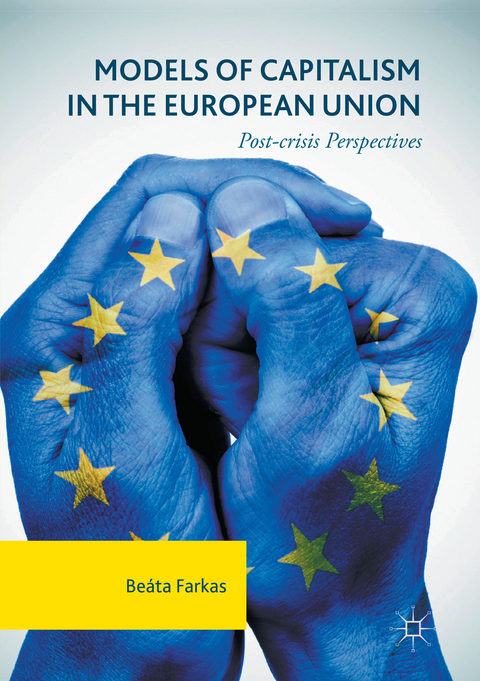
Models of Capitalism in the European Union
Palgrave Macmillan (Verlag)
978-1-349-95611-1 (ISBN)
Models of Capitalism in the European Union serves as a useful handbook for academics, advanced students, policy-makers and advisors who are interested in European economic issues.
Beáta Farkas is Professor and Head of the Institute of Finance and International Economic Relations at the University of Szeged, Hungary. She joined the university after obtaining degrees in both Law and Economics, and now holds a PhD in Economics. She was the founding Dean of the Faculty of Economics and Business Administration.
Introduction.- PART I: Institutional Analysis in Economics.- 1. Institutions in the Economic Thought.- 2. The Models of Capitalism – Comparative Institutional Analyses.- PART II: Models of the Market Economy in the EU at the Threshold of the Global Financial and Economic Crisis of 2008.- 3. An Empirical Analysis of the Economic System.- 4. Models of Capitalism in the Enlarged EU.- PART III: Market Economies of the EU in the 2008 Global Crisis.- 5. Crisis-resistant Nordic Countries?.- 6. Different Development Paths in the North-Western Countries.- 7. The Search for a Way Out in the Mediterranean Countries.- 8. Crisis Management in the Central and Eastern European Member States.- PART IV: European Integration of the Varieties of Capitalism.- 9. Classification Based on the Driving Factors of the Crisis and the Models of Capitalism.- 10. Lessons to Learn from the Institutional Analysis.- 11. Models of Capitalismand the Future of the European Integration.
| Erscheinungsdatum | 18.08.2018 |
|---|---|
| Zusatzinfo | 11 Illustrations, black and white; XXI, 541 p. 11 illus. |
| Verlagsort | Basingstoke |
| Sprache | englisch |
| Maße | 148 x 210 mm |
| Themenwelt | Sozialwissenschaften ► Politik / Verwaltung ► Europäische / Internationale Politik |
| Sozialwissenschaften ► Politik / Verwaltung ► Vergleichende Politikwissenschaften | |
| Wirtschaft ► Allgemeines / Lexika | |
| Wirtschaft ► Volkswirtschaftslehre ► Wirtschaftspolitik | |
| Schlagworte | 2008 financial crisis • Capitalism • Comparative Economics • eu member states • European Integration • European Union (EU) • Institutional Analysis • Political Economy • Political Science • Politics |
| ISBN-10 | 1-349-95611-2 / 1349956112 |
| ISBN-13 | 978-1-349-95611-1 / 9781349956111 |
| Zustand | Neuware |
| Haben Sie eine Frage zum Produkt? |
aus dem Bereich


